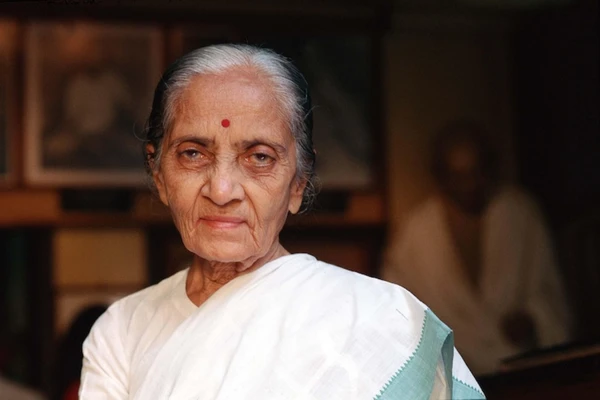Usha Mehta was an important figure of the Indian National movement, especially for setting up underground Congress Radio during the Quit India Movement.
About Usha Mehta:
- Usha Mehta was born in Saras, a village near Surat in modern-day Gujarat on 25th March 1920.
- In 1928, eight-year-old Usha participated in a protest march against the Simon Commission and shouted her first words of protest against the British Raj- “Simon Go Back.”
- She participated in various forms of protests and activism, including picketing, protest marches, and spinning Khadi cloth during the Civil Disobedience Movement.
Contribution to Congress Radio Project:
- Mehta and her friends decided to establish the Congress Radio for propaganda and mass communication, by inspiration of Gandhi’s Quit India Movement (QIM) speech in Bombay.
- This was a challenging and dangerous undertaking, especially considering the British authorities’ crackdown on dissenting voices.
- Her associates included Vithalbhai Jhaveri, Chandrakant Jhaveri, Babubhai Thakkar and Gainchand (Nanka) Motwane, who supplied equipment and technicians.
- Many other leaders like Dr. Ram Manohar Lohia, Achyutrao Patwardhan and Purushottam Trikamdas, also assisted the Secret Congress Radio.
- The broadcasts captured the mood of the times, generating enthusiasm and firm resolve among the Indian populace for independence.
- The program would commence with a recording of Saare Jahan se Achha, Hindustan Hamara, and would go on to narrate the most important news stories regarding the QIM.
- The bulletin would then culminate with Gandhi’s message of Do or Die, and with the playing of Vande Mataram.
- The British filed the Congress Radio case on Mehta and her associates, while Vithalbhai and Motwane were acquitted, Mehta, Babubhai, and Chandrakant received stern sentences.
- Usha Mehta was released from Pune’s Yerwada Jail in March 1946, and hailed in the nationalist media as “Radio-ben”.
Recognition:
- Her efforts were recognized post-independence, and she was conferred with the Padma Vibhushan, India’s second-highest civilian honor, in 1998.
- She remained a staunch Gandhian till her passing in 2000, leaving behind a legacy of bravery and dedication to the cause of freedom.
Ref:Source
| UPSC IAS Preparation Resources | |
| Current Affairs Analysis | Topperspedia |
| GS Shots | Simply Explained |
| Daily Flash Cards | Daily Quiz |



